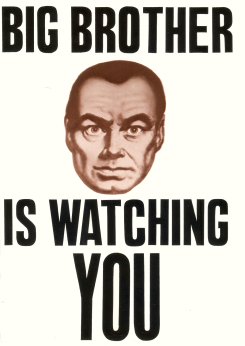Police powers ruled illegal - New Labour tell police to carry on regardless

The number of stop-and-searches under Section 44 of the Terrorism Act of 2000 has trebled in a year, with police facing protests that they have targeted tourists, photographers and trainspotters under the legislation.
Yesterday the European Court of Human Rights ruled that the police right under the Terrorism Act of 2000 to question people without grounds for suspicion was illegal.
Alan Johnson, the Home Secretary, vowed to fight the ruling.
The European Court ruling was prompted by the case of Kevin Gillan and Pennie Quinton, who were both searched on the same day in 2003 close to an arms fair at the Excel Centre in London's Docklands. It had been designated under Section 44 of the Act as an area where police were entitled to use wide anti-terrorist powers.
Ms Quinton was a journalist filming near the arms fair, and had already shown police her press card, while Mr Gillan was riding his bicycle past the building.
They decided to challenge the powers in the UK courts. The Court of Appeal and the House of Lords said the powers were legitimate given the risk of terrorism in London.
But yesterday the European Court of Human Rights rejected the Government's argument that Section 44 was a proportionate response. The Strasbourg judges said a police officer's decision to stop and search an individual was one based exclusively on the "hunch" or "professional intuition".
Last night the Government pledged to try to overturn the ruling by taking the unusual step of appealing to the court's grand chamber. But legal experts said the court's unanimous decision (7-0) showed government lawyers would have a steep hill to climb.
Mr Johnson said: "Stop and search under Section 44 of the Terrorism Act 2000 is an important tool in a package of measures in the ongoing fight against terrorism. We are considering the judgment and will seek to appeal. Pending the outcome of this appeal, the police will continue to have these powers available to them."
Not a single stop-and-search under the new anti-terrorism powers has resulted in a conviction for terrorism, despite police officers in England and Wales used the powers to search nearly 200,000 people last year.
The year before 124,687 people were searched, up from 41,924 in 2006-07.
After the ruling, Ms Quinton said: "The court has shown that Section 44 is an invasion of people's right to liberty and privacy."
Corinna Ferguson, a legal adviser to the civil rights group Liberty and acting for Ms Quinton and Mr Gillan, said: "The public, police and Court of Human Rights all share our concerns for privacy, protest, race equality and community solidarity that come with this sloppy law."
Labels: echr, new labour, police, section 44






0 Comments:
Post a Comment
<< Home